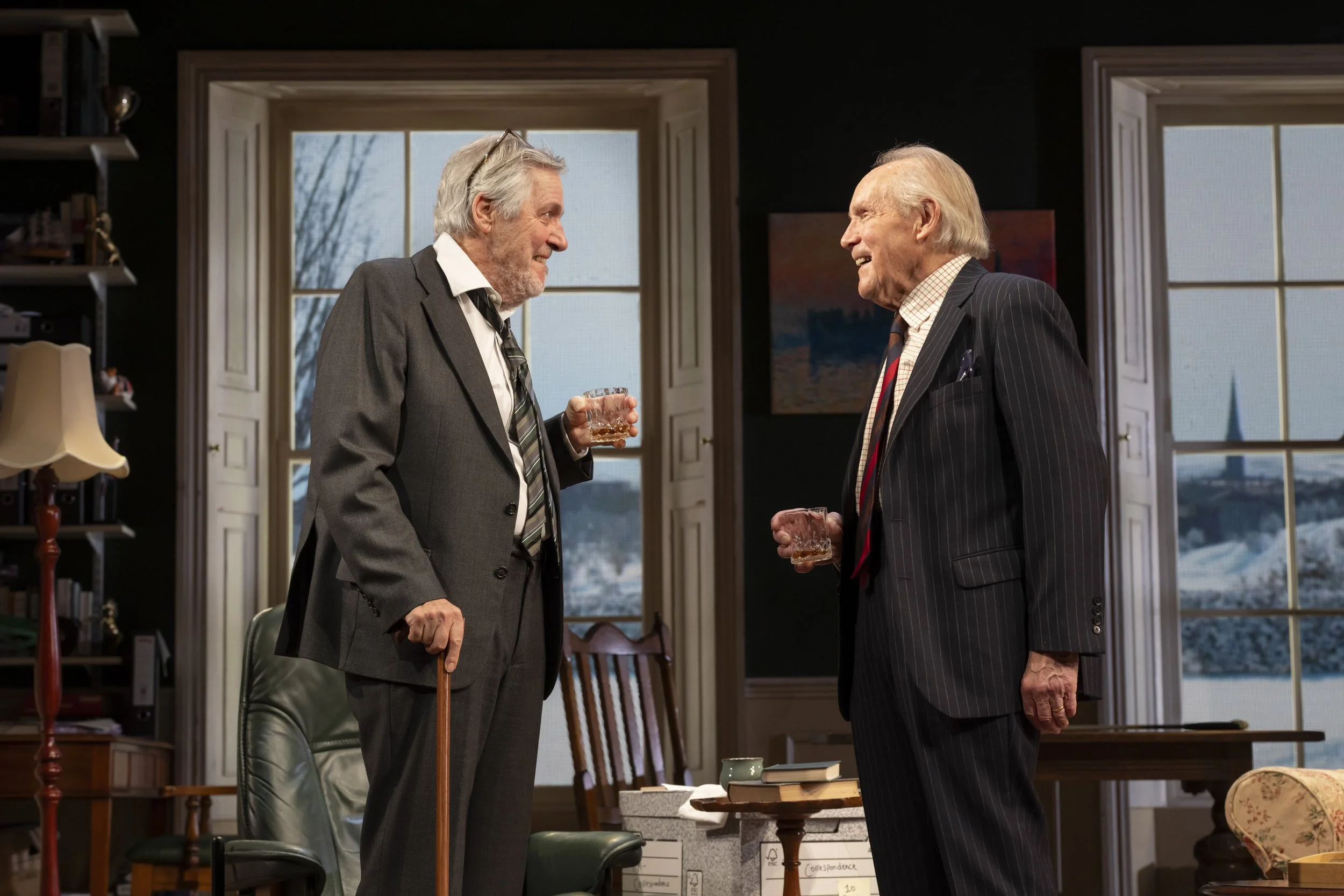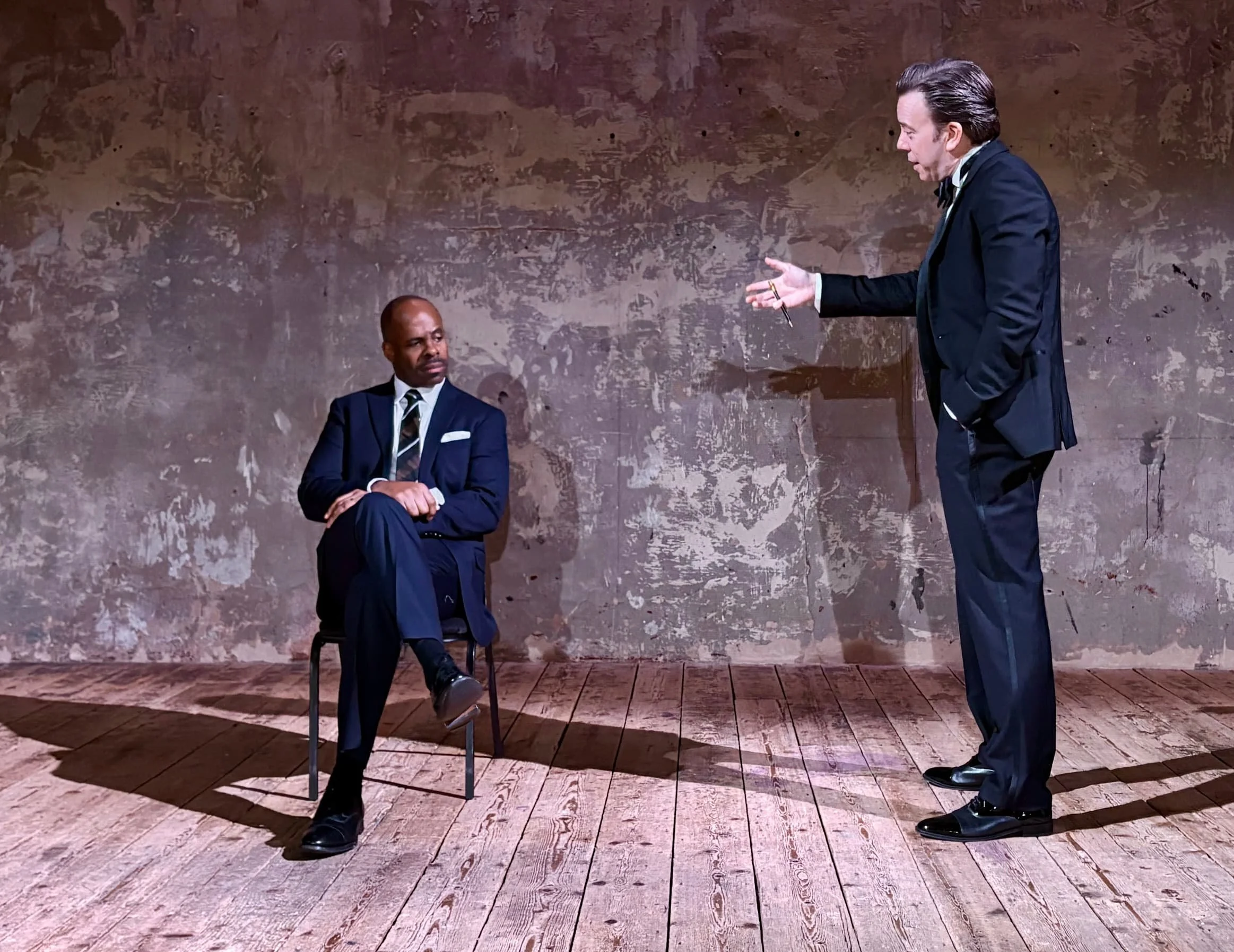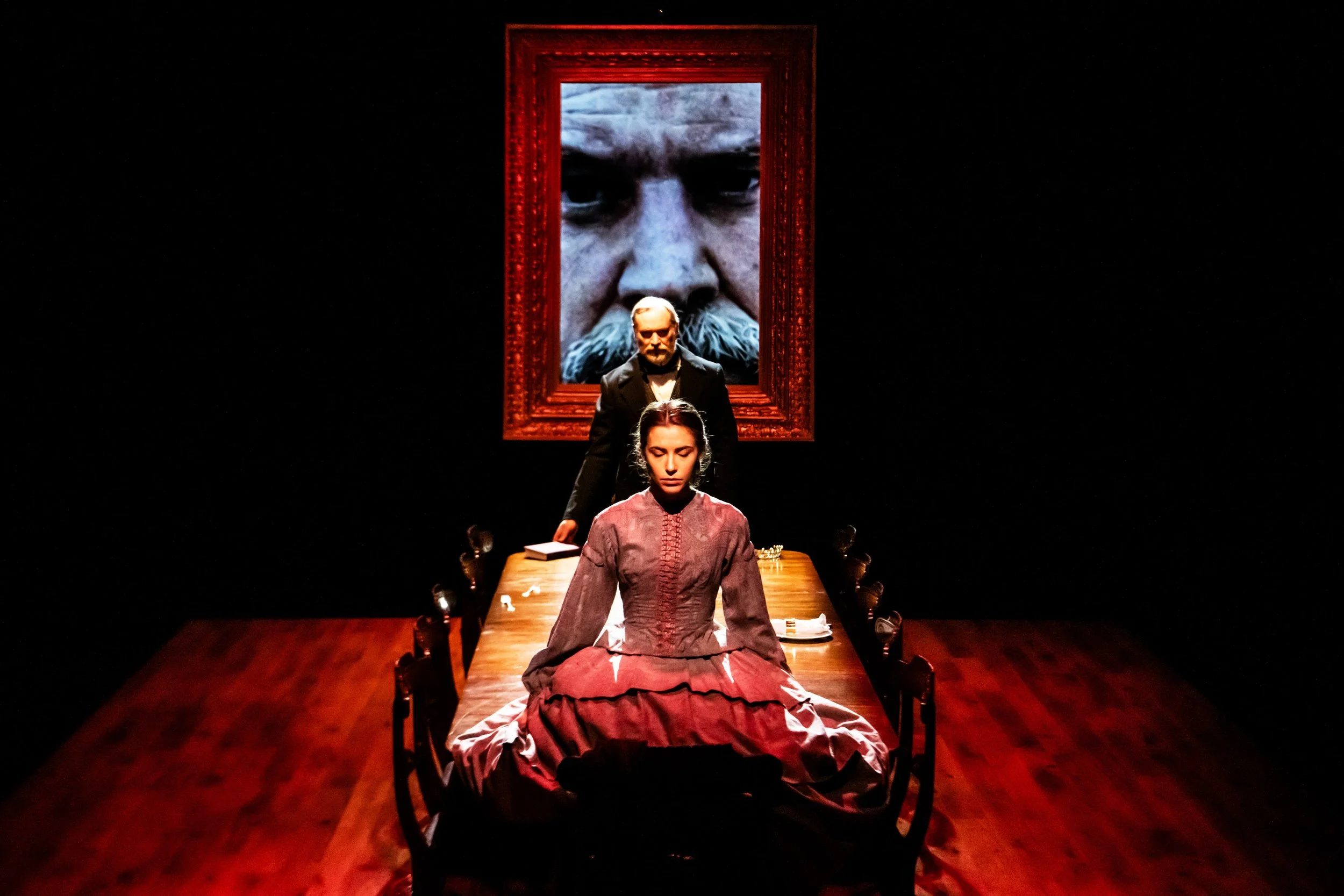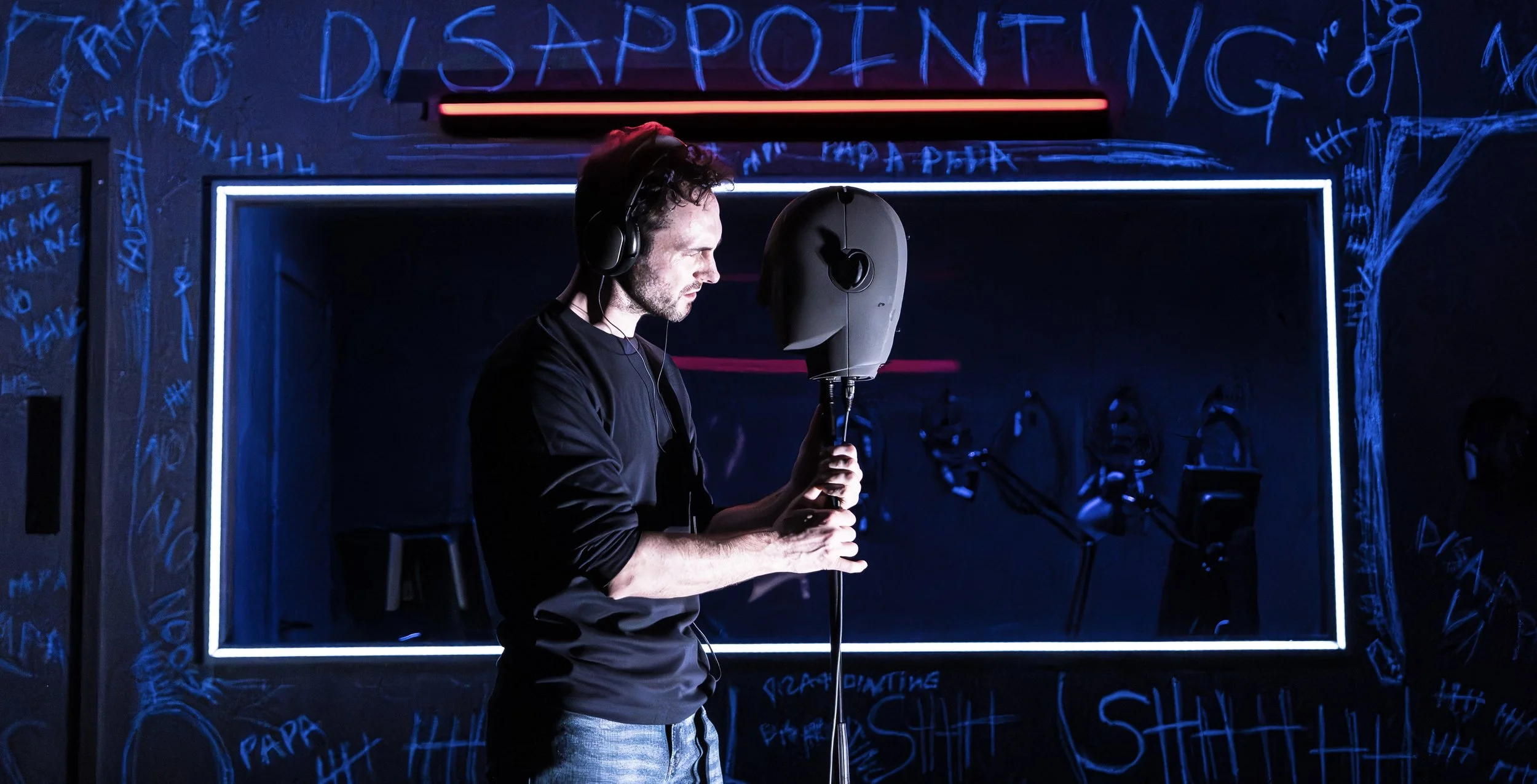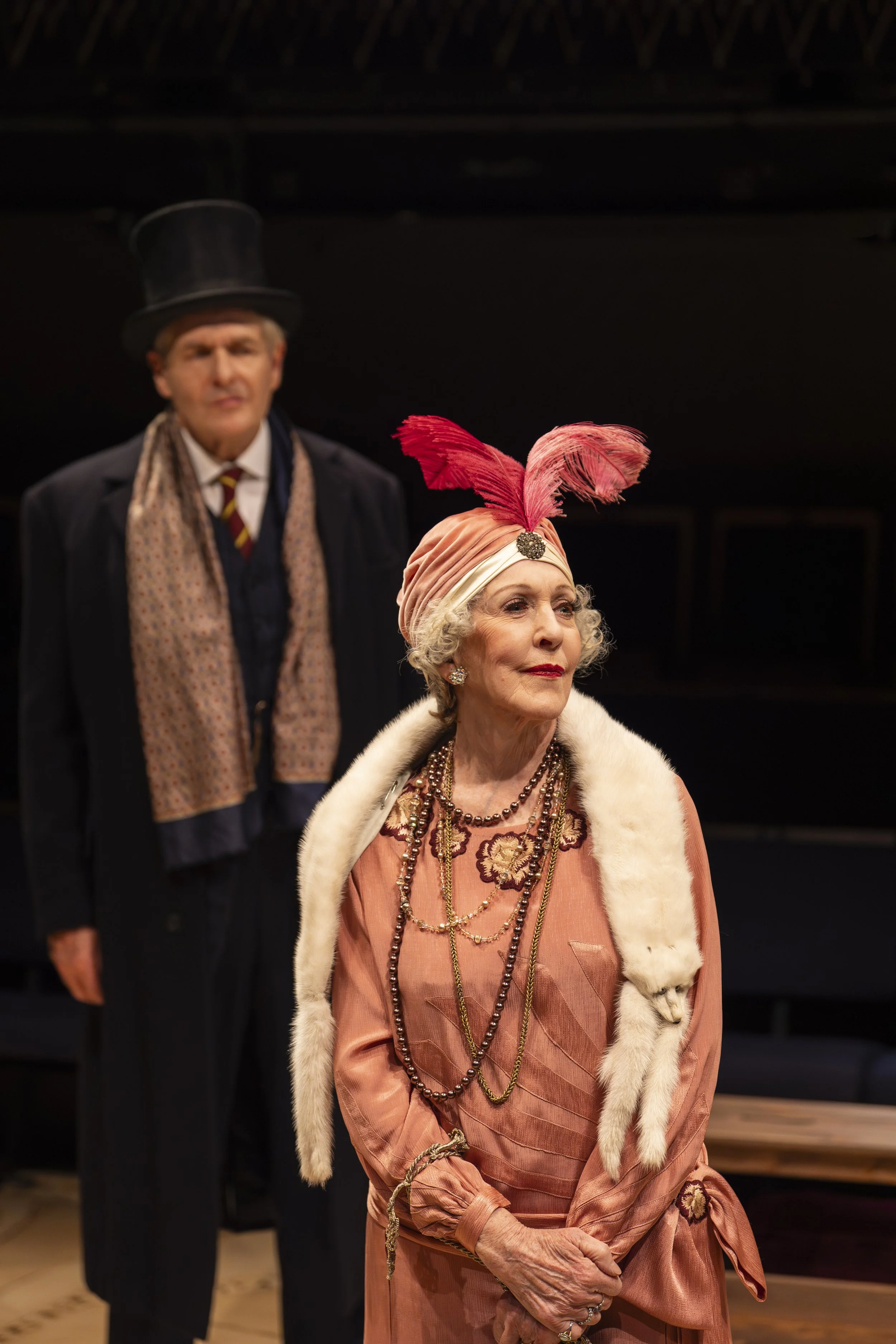Personal Values at Hampstead Theatre Review
Archie Christoph-Allen as Ash and Rosie Cavaliero as Bea in Personal Values. Photo by Helen Murray
Written by Cathie for Theatre & Tonic
Disclaimer: Gifted tickets in exchange for an honest review
Grief is a universal experience yet the conundrum of humanity means that we all experience its impact in different forms. How societally acceptable these forms are is a completely different topic that Personal Values does well to open up. In this striking debut play by writer Chloe Lawrence-Taylor, and directed with laser nuance by Lucy Morrison, we dive deeply into the raw intersections of loss, mental health, and family. It’s a thoughtful, compassionate portrayal of how people fracture and sometimes reconnect under the weight of unspoken trauma.
The set, designed by Naomi Dawson, is a triumph in storytelling. Rendered in claustrophobic detail, every surface groans with objects, creating a powerful visual metaphor for psychological overload and an extremely realistic depiction of a hoarder’s space. In the intimacy of Hampstead Theatre’s downstairs space, which only seats 80, the design creepily envelops the audience, evoking a visceral sense of confinement by mountains of clutter.
At the play’s heart are Veda (Holly Atkins) and Bea (Rosie Cavaliero), sisters separated not just by time but by layers of emotional debris. Bea is a virtual shut in, overwhelmed by compulsive hoarding that has all but consumed her home, lives cloistered to the extent she cannot travel anywhere in her house bar one room and the stairs are completely consumed in clutter. Her reclusiveness began after their mother’s terminal illness but deepened during their father’s decline and death. Meanwhile, Veda is the one who “got out” of the house and escaped into marriage and motherhood, although she is not particularly happy with either role and is perpetually unfulfilled. Veda is also suffering from an unnamed terminal illness and wants to rescue her sister from her hoarding before it’s too late. The dialogue between the two sisters’ crackles with tension and buried affection. Atkins and Cavaliero bring a captivating intensity to their performances, capturing the unique cadences of sibling friction with painful honesty, genuine compassion and awkward connection. The two actresses are magnetic to watch in their heartfelt discussion and the range of emotions they effortlessly evoke is absorbing to watch.
Though the narrative occasionally wavers throughout the scenes, particularly in moments where supernatural elements are hinted at but never fully grounded, the emotions between the siblings keep the story on track. Lawrence-Taylor’s writing truly shines best in depicting generational trauma and the efforts to break destructive family patterns. Much of this trauma is shown through discussions of their father’s Mrs Havisham’s impression and refusal to move on after his wife’s death. It is also clearly demonstrated through Veda’s deep concern for her son Ash (Archie Christoph Allen). She is deeply concerned over his social isolation, his retreat into his bedroom and the digital world at every opportunity, and she is terrified that he may echo Bea’s fate after her own passing. His entry into the play at 45 minutes showcases their similarities and familial connection in such a way that its clear that Veda’s fears were well founded. Allen is wonderfully awkward and sincere as Ash, masterfully poised in his portrayal of teenage grief and vividly striking to watch on stage.
This play is a very vivid depiction of how grief and humour intertwine and the heartbreaking reality of seeing loved ones suffer from hoarding and pain. As a production, it stands as one of the most authentic portrayals of grief I’ve encountered in theatre, capturing its quiet perseverance and the way it shapes us over time. What makes this play particularly compelling is how it conveys the bittersweet nature of British humour, how we often mask our discomfort with sharp wit, using humour as both shield and bridge in our relationships. The minute details are immaculate and the microhesitations and frustrated awkwardness is vividly portrayed. This play also firmly condemns the reality tv shows which profit off of the pain and embarrassment of vulnerable individuals and shows the huge emotional trauma and embarrassment that those who hoard struggle with.
The Hampstead Theatre is well known for championing new writing and this play is an incredibly high quality which stands firmly above many of the “safer topic” plays that are emphasised in our current theatrical palates. It’s fresh and deeply invigorating with a superb element of pathos and deliberate empathy, not sympathy. At 1 hour running time, this play is a perfectly satisfying experience without overloading the audience and does not overly stretch out its very salient points.
This is a beautifully powerful and poignant play that reflects upon mental health in an empathetic way and leaves a sign of hope at the end for us to wish the characters find ways to cope with their grief in healthy ways. It’s not the easiest of watches, especially if you know those who struggle with grief or hoarders but it is an important contribution to the debate in theatre, opens up the topic without fear and is a powerful conversation starter amongst the audience. If you enjoy British humour, discussions of mental health and the power of resilience and family connection, then this is the play for you.
At Hampstead Theatre until 17 May 2025
★★★★



